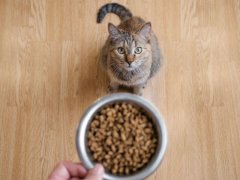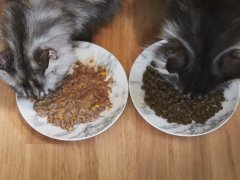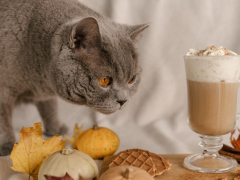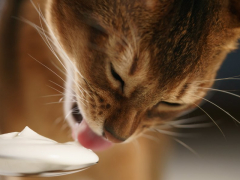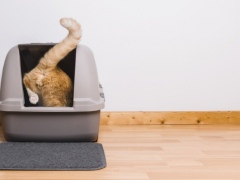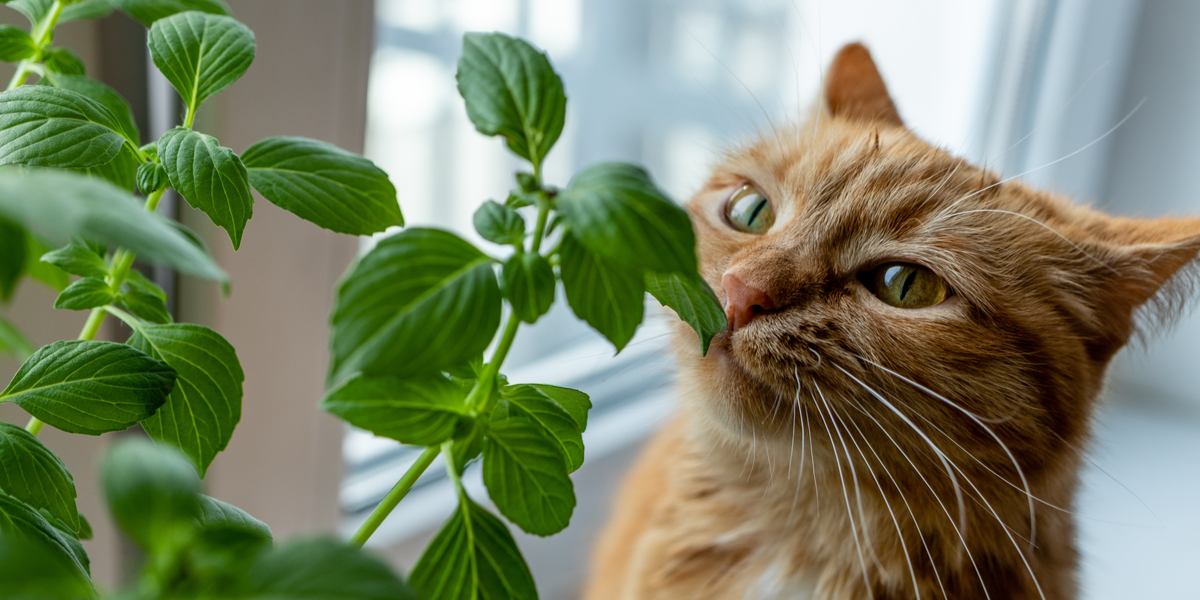
Basil, or Ocimum basilicum, is a common herb found in gardens and kitchens all over the world. Part of the mint family (Lamiaceae), basil leaves are used in many dishes either fresh or dry. So is basil safe for cats? As cat owners, we are of course concerned about our cat’s health.
The nutritional benefits of basil for humans are obvious. It is very low in fat and cholesterol, whilst offering a good source of fiber, protein, and a whole range of vitamins and minerals.
But is basil as healthy for cats?
Sadly not, as cats cannot digest plant material well enough to extract all the goodness from this leafy herb. Cats are obligate carnivores, they rely on meat for their nutritional needs and their gastrointestinal system is highly adapted to digest meat.
Cats, therefore, do not digest plant material well, meaning they do not extract all the good nutrients particularly well.
Do Cats Like the Taste of Basil?
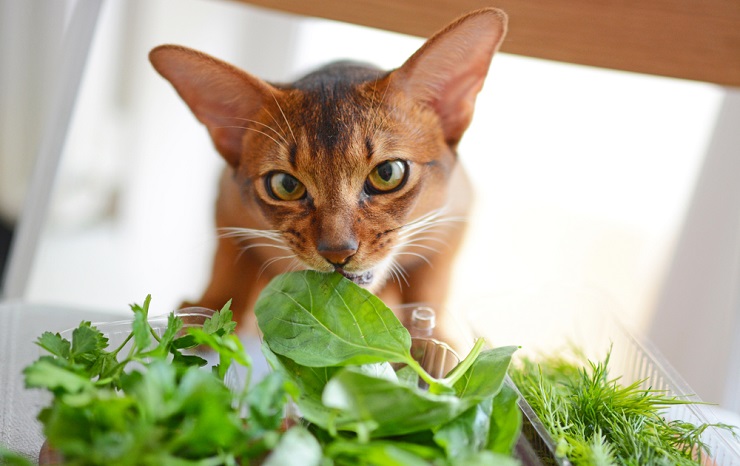
In very rare cases, cats may be allergic to basil, which may show up as hives, vomiting, or breathing difficulties.
Cats naturally prefer meaty or fishy flavors and textures. However, some cats like to explore different tests and textures, and chewing on some scented plants in your herb garden is not uncommon.
Some cats may be drawn to the unique smell of basil and actively enjoy a small treat of basil leaf, but it is likely that most of our furry friends would not be impressed by the taste. Cats may prefer other herbs, such as catnip or catmint.
Benefits of Basil for Cats
Although cats are not well adapted to digest herbs, vegetables, and other plant-based materials, they may be able to absorb small amounts of nutrients from the fresh leaves. This healthy herb provides fiber, protein, antioxidants, vitamins A, C, K, and more, and plenty of minerals such as calcium.
Also Read: Is It Safe To Feed Your Cat A Vegan Diet?
Basil is also thought to be a natural anti-inflammatory, and provide mental health benefits as well.
Eating basil may provide very tiny amounts of these beneficial nutrients for the cat, but it should never be used as a substitute for commercial cat food to provide essential dietary needs.
How Much Basil Can a Cat Eat?
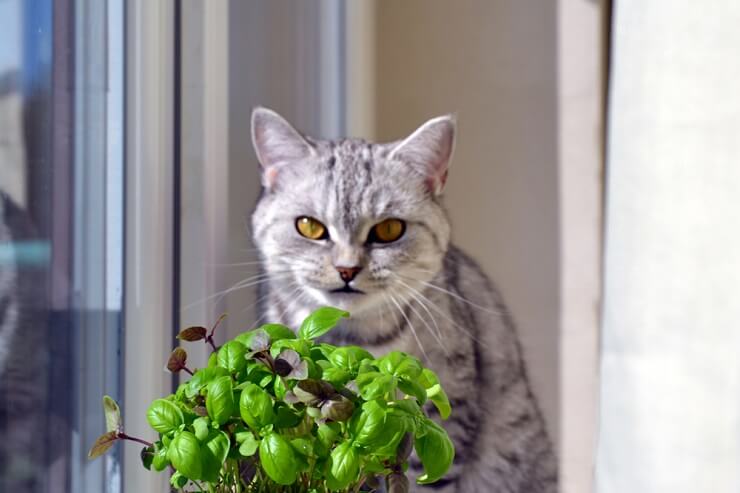
If your cat nibbles a little on basil, it should cause no ill effects, but don’t go out of your way to feed it.
Your cat’s main diet should be heavily meat-based, as they are carnivores and require meat to fulfill their daily nutritional needs. If your cat likes to eat basil, it is best given in small amounts as large amounts may have side effects such as a digestive upset.
Also Read: Digestive Enzymes For Cats: Everything You Need To Know
How Often Can a Cat Eat Basil?
Basil, and other plant material, should only form a very small part of your cat’s diet, and so should be fed as an occasional treat only.
Is Basil Used in Commercial Cat Food?
Basil is unlikely to have any nutritional benefit for cats and is not found in commercial cat diets, which are usually mostly made up of protein sources such as meat and meat derivatives.
Is Basil Bad for Cats?
Basil is not known to be toxic or at all poisonous to cats. Fresh, dried, and cooked basil are all perfectly safe. Eaten in large quantities, it could cause a digestive upset leading to vomiting or diarrhea. Very rarely, cats can have allergic reactions to basil, which may present as hives, vomiting, swellings, or breathing difficulties. If you are concerned about your cat, contact your veterinarian.
Also Read: 10 Toxic & Poisonous Plants For Cats
Basil essential oil should never be given to or used on cats. It is high in synthetic phenols, which can cause severe liver damage.
Also Read: The 7 Best Calming Cat Treats
